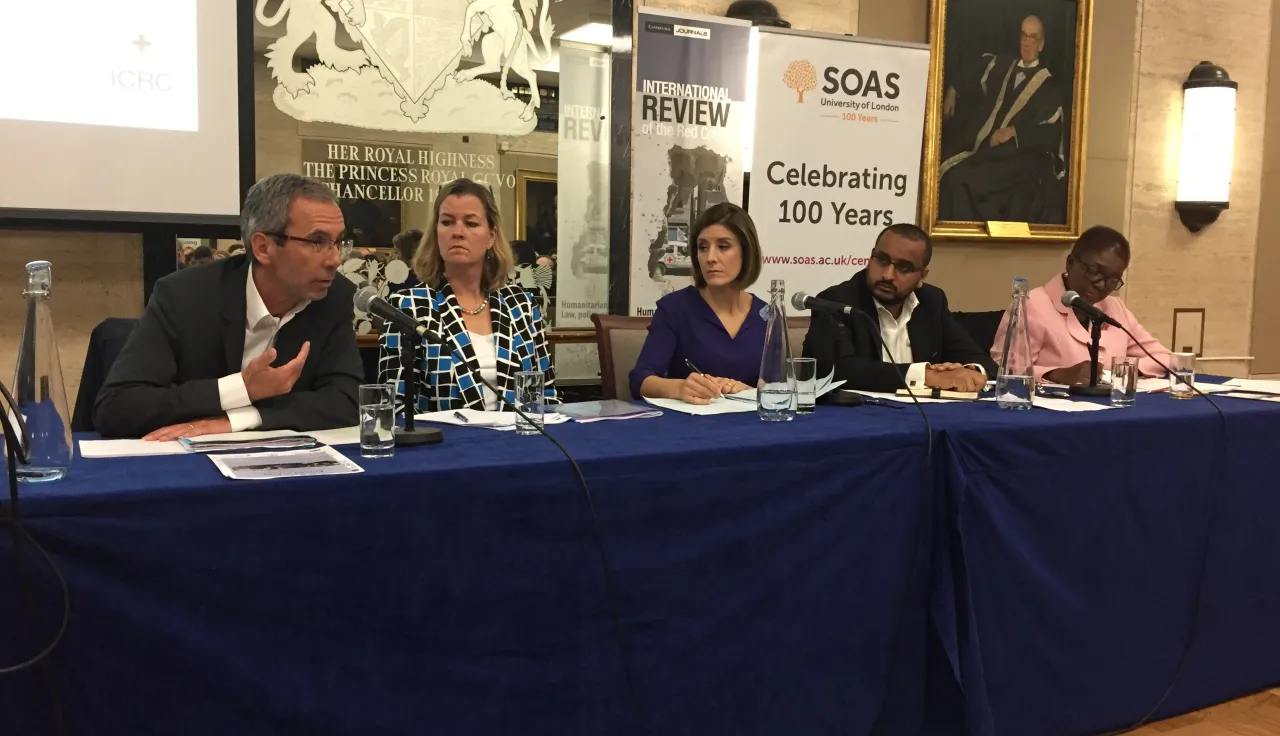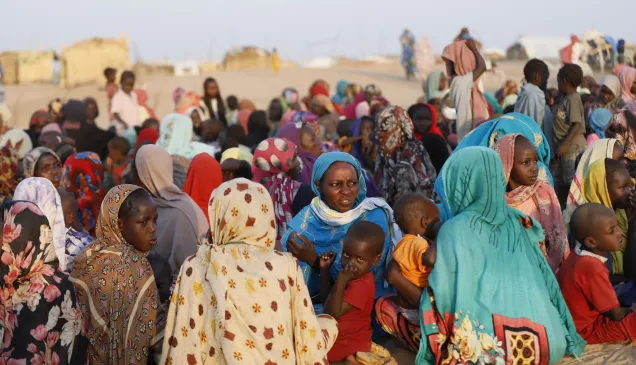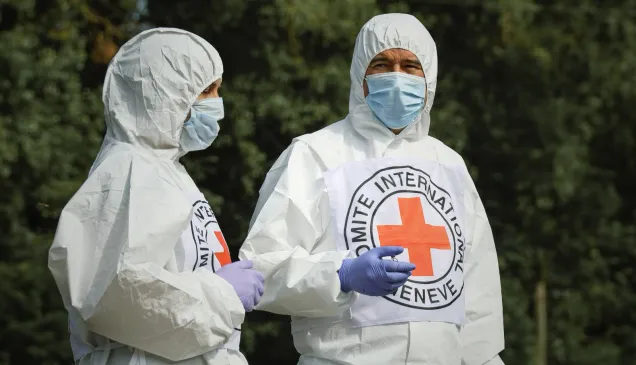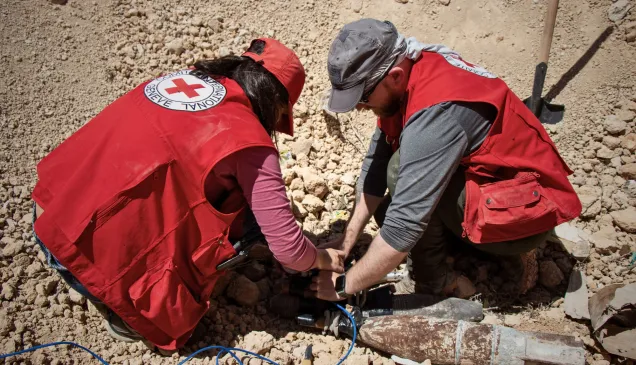Forced to flee: With millions on the move, the world must do better. But how?

As global levels of forced displacement reach a record high, a two-day conference in London asked how lessons from the past can help find solutions to the present crisis.
An estimated 65 million people are now believed to be displaced, many of them fleeing their homes because of war, persecution, natural disasters and poverty. And as this number continues to rise, urgent solutions are need to ensure the most vulnerable are assisted and protected. The 2-day 'Forced to Flee' conference and public panel event, co-organised by ICRC, the British Red Cross, the School of Oriental and African Studies (SOAS) and the University of Exeter, brought together a number of experts, many of them working on the frontlines of the migration crisis.
"We must never forget the individual tragedies behind everyone of the millions displaced," ICRC Director of Operations Dominik Stillhart reminded participants at Senate House in London. Stillhart also stressed the importance of respecting International Humanitarian Law (IHL) and said ongoing violations of the rules of war was one of the major reasons behind people's decisions to leave flee their homelands. Not enough is being done by States to prevent and resolve armed conflict, and far too little is being done to respect and ensure respect for international humanitarian law he added.
"We are expecting a level of resilience from people that we have no right to expect," said SOAS Director Baroness Valerie Amos, expressing her frustration at what she believes is a widespread lack of political will by States to address this growing crisis. "The everyday reality of people fleeing is being watched with a staggering level of inaction."
ICRC's Stillhart also reminded participants that the majority of people who are uprooted by armed conflict and other situations of violence remain within their own or neighbouring countries. 'Many who flee never reach the shores of Europe but remain in their own or neighbouring countries". He said countries affected by conflict also needed to keep a focus on internal displacement. Abdurahman Sharif, Director of the Somalia NGO Consortium also added that whilst much of the current focus is on Europe, the migrant and refugee populations are much higher in Africa.
Despite the 2016 signing of The New York Declaration for Refugees and Migrants, a milestone commitment from world leaders to save lives, protect rights and share responsibility for those forced to flee, more remains to be done to find long-term solutions. "A wider coalition of support is needed as solution to forced displacement" said deputy high commissioner Kelly Clements of the United Nations refugee agency (UNHCR)
In terms of the British context, Sorcha O'Callaghan, Head of Humanitarian Policy at the British Red Cross reflected upon the UK's long history of welcoming refugees, even in bigger numbers than today. "What we have learnt from the past, both the positive and negative lessons, can inform our action and responses," she said.



